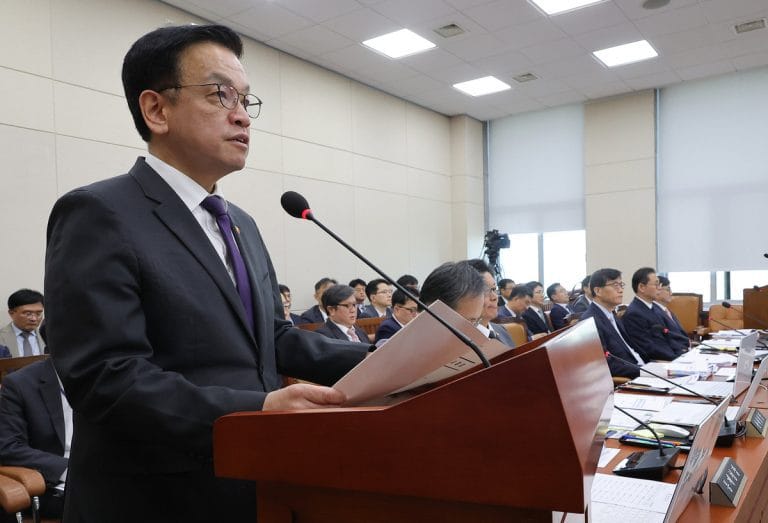🎧 Listen to This Article
South Korea’s tax revenue surged by 5.5 trillion won ($3.8 billion) in March 2025 compared to the same month last year, mainly due to a substantial rise in corporate tax collections. The total tax revenue collected in March amounted to 32.3 trillion won, up from 26.9 trillion won in March 2024, according to data released by the Ministry of Economy and Finance.
The revenue boost was driven by strong business performance among corporations whose fiscal year ended in December. Corporate tax revenue increased by 5.8 trillion won, driven by improved corporate profits and a rise in interest and dividend income. Despite the overall increase in tax revenue, the execution rate of corporate tax revenue relative to the annual budget target stood at 28.6% in March, lower than the previous year’s rate of 30% and the five-year average of 29.5%.
Corporate Tax and Economic Performance
The increase in corporate tax collections reflects a stronger-than-expected performance among large companies, bolstered by both domestic and global business growth. However, concerns linger over the under performance of corporate tax relative to expectations. Cho Moon-kyun, a finance ministry official, stated that while the March corporate tax revenue was slightly below target, it was not a major concern at this time. “Given the growing domestic and global uncertainties, we need to keep a close watch on the interim tax payments due in August,” Cho added.
Other Tax Revenue Trends
While corporate tax revenue showed strong growth, other revenue sources saw mixed results. Value-added tax (VAT) revenue decreased by 800 billion won, partly due to a rise in tax refunds. Stock transaction tax revenue also fell by 200 billion won, reflecting a decline in trading activity on South Korea’s stock exchanges.
On the other hand, inheritance and gift tax revenue rose by 200 billion won due to an increase in the number of deaths, while taxes on transportation, energy, and the environment saw a 100 billion won increase. The finance ministry continues to monitor these trends as it prepares for future budgetary adjustments and fiscal policies.
Outlook for 2025
The overall increase in tax revenue offers some relief for South Korea’s fiscal health, though concerns about the uncertain economic environment remain. With ongoing challenges in the global economy and domestic financial markets, South Korea’s government will continue to closely monitor tax collection trends in the coming months, especially as it looks ahead to mid-year tax assessments.
For further details, clarification, contributions, or any concerns regarding this article, please get in touch with us at editorial@tax.news. We value your feedback and are committed to providing accurate and timely information. Please note that our privacy policy will handle all inquiries.



